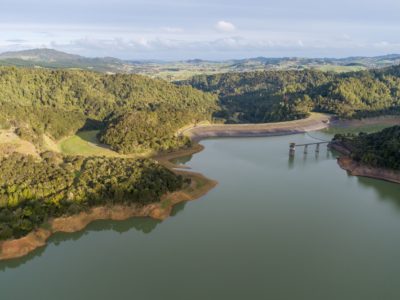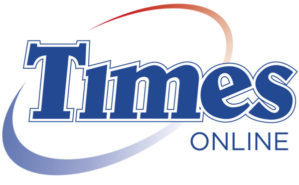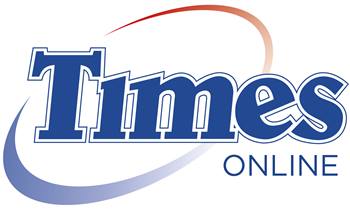
Auckland Council’s Finance and Performance Committee today voted to endorse Mayor Phil Goff’s proposal for the Emergency Budget 2020/2021, which responds to the $750 million fiscal hole caused by the Covid-19 crisis and the urgent need for more water infrastructure to avoid increased water restrictions.
Goff said in a statement tonight it was one of the most difficult budgets in the council’s history.
“The Covid-19 lockdown has had a huge impact on Aucklanders and many businesses and, like many, Auckland Council has also taken a severe financial hit with a revenue shortfall of $475m this financial year,” he said.
“On top of this, we have had to find a further $224m for new water infrastructure to reduce the risk of severe water restrictions.
“In the face of these challenges, councillors have worked collaboratively with local boards and the community to find savings and make cuts to our spending so we can ensure the most critical services continue to be provided. None of these decisions have been easy, but we have made the tough calls necessary to keep our city running while responding to this crisis.
Finance and Performance Committee chair Desley Simpson said, “The decisions in our Emergency Budget mean local boards continue to receive their full discretionary funding, which helps ensure local community projects continue.”
Goff said a further funding reinstatement of $450,000 will ensure that libraries can continue to operate at full hours.
“Our libraries are much-loved by Aucklanders and important community assets so I’m pleased that we can retain their full opening hours.
“We have also been able to increase transport investment by $40m, including safety funding which is absolutely vital to ensure we are saving more lives on our roads,” Goff said.
“For the first time in council’s recent history, all 21 local boards have backed the same rates increase. Council has agreed the 3.5 per cent average general rates increase option, which is the same increase as was originally proposed in the 10-year Budget in 2018.
“I appreciate that some Aucklanders will be suffering economically because of the Covid-19 recession. To help support those in need, we are setting aside $50m for rates relief and also suspending the targeted rate on visitor accommodation (bed tax).
“This budget also recognises that with less money available, we have to reduce our spending. Council needs to become a smaller and more adaptable organisation. With a reduction already of over 600 temporary and contract workers, there is likely to be further reduction of around 500 permanent jobs. Staff and elected members have taken salary cuts and budgets for non-essential spending have been slashed.
“Cuts have been made in services and investment in some infrastructure projects has been deferred, reducing spending by hundreds of millions of dollars.
Despite these reductions, the Emergency Budget maintains as far as possible the critical services Aucklanders rely on, the Mayor said.
“We have also strived to maintain as much as possible the investment our city needs in areas such as public transport infrastructure and roads, as well as the environment and water infrastructure. These investments will deliver an important long-term legacy for Auckland, while also helping to stimulate jobs growth and economic activity and make up for decades of under-investment in our city.
“This has been a difficult budget and a difficult time for everyone but I am confident that by working together we can continue to build a stronger and fairer Auckland. I want to thank everyone who has contributed to the development of this budget, including councillors, local board members, the Independent Māori Statutory Board, mana whenua and other key regional stakeholders, and Aucklanders.”
Councillor Simpson said, “I believe we have found a balance between financial prudence, maintaining the core services our communities deserve and investing in Auckland’s future. I am grateful to the many arms of the council family and our 21 local boards who have worked tirelessly, coming together to produce a budget that enables us to recover from both a pandemic and a drought.”
Meanwhile Howick Ward councillors Sharon Stewart and Paul Young backed the increase today.
“I was proud to support a 3.5 per cent rates increase alongside Councillor Sharon Stewart and the Howick Local Board,” said Young.
“The Emergency Budget delivers a strong result for the east, given the challenging circumstances. The Emergency Budget keeps key east Auckland transport projects moving, while minimising cuts to essential local services like libraries, park maintenance and road safety. This includes the AMETI Eastern Busway and the Airport to Botany Rapid Transit project.
“I could not support a Budget that would add risk and further delays to these key projects”
He said the reality is that rates would need to increase by around 30 per cent to cover $525m of lost revenue due to Covid-19. This is even before considering the additional emergency drought infrastructure.
“The Council has made itself smaller and more adaptable,” said Young.
“There have been significant savings across the board to accommodate the 3.5 per cent increase. Sadly, this includes the loss of over 1000 council jobs.”
He said a zero rates increase was not an option due to the long-term damage it would have on local services, new infrastructure, as well as employment and business activity in Auckland post-Covid-19.
“In setting the budget, the council listened to feedback from the public and our local boards and put more funding into traffic safety initiatives as well as restoring the local board discretionary funding,” Young said.
“Public consultation confirmed to us that we need to provide support for those affected by the global pandemic. In the Emergency Budget we are setting aside $50m for rates relief as well as suspending the targeted rate on visitor accommodation.
“I understand the coming months will not be easy and I would encourage any households or businesses who find themselves in a difficult situation to use our rates postponement support as well as the government’s rates rebate scheme.
“The Emergency Budget gets us through this challenging financial year and leaves us in a place where we can continue to push for the long overdue local projects, like a new library and community centre in Flat Bush.”
Stewart also responded. “At the Emergency Budget meeting today, I voted for the 3.5 per cent rates rise and it was not an easy decision,” she said.
“I took all the information provided into consideration before deciding to vote for the 3.5 per cent rates rise. I have always strongly advocated pre-Covid-19 that council needed to take a hard look at its expenditure in order to save costs.
“Prior to Covid-19 I was supportive of a zero per cent increase, however we are now in unprecedent and extraordinary times where I have had to reconsider my decision for the benefit of Auckland as a region.
“The public will be well aware that because of Covid-19, Auckland Council’s forecasted revenue is down. Rates revenue is only 40 per cent of Auckland Council’s total revenue and 60 per cent was from other investments such Ports of Auckland dividends, Auckland Airport dividends, venue hire etc.
“These revenue streams are no longer available to Auckland Council at this time which has contributed to the decision I have taken today.”
The unprecedent drought that Auckland is facing has exacerbated the situation for Auckland Council’s revenue, she said.
“When the Emergency Budget was consulted, we were not told that an extra $224 million was needed to assist with Auckland’s water infrastructure to reduce risks of severe water restriction in the coming months,” said Stewart.
“Capital works have been deferred, staff numbers are going to be reduced, all councillors and senior staff have had a pay decrease, everyone has played their part. A rate increase of less than 3.5 per cent would require a level of reduction to council services that would have more detrimental effects on our communities including more job losses, less funding on essential water infrastructure and reduction in opening hours to our community facilities.”
Stewart said she also considered that a rate of less than 3.5 per cent would mean that Super Gold card users and other concessions fares would no longer be available.
“This would limit the mobility of our elderly which is not good for their general health and well-being. I acknowledge and thank all those that submitted during the Emergency Budget consultation,” said
Stewart.
“A vast majority of submissions in the Howick Ward area were for 0 per cent and 2.5 per cent rates rise due to economic challenges from Covid-19 and I reiterate that it was not an easy decision to vote for a 3.5 per cent rates increase with this knowledge.
“I can understand some of the submissions that a lot of people want us to get back to core business – over Covid-19 a man in Howick tripped over a poorly-patched footpath and died. We need to spend more money on core business that we all use. (Regarding) footpaths, I myself have tripped on because of poor maintenance.
“Cycleways may need to take a back seat for a while and let us catch up with footpaths and potholes in roads. We need to also stop duplication. This may happen if we get a CEO who, hopefully, will be directed to reset the council’s expenditures.
“I also acknowledge that all 21 local boards supported a 3.5 per cent rates increase, many with the same knowledge from their community.
“The current Mayor has promised a review of the Council Controlled Organisations (CCOs). Hopefully this will now happen in light of the new environment we are in. I can only reaffirm my pledge to the Howick community that I will continue to strongly advocate that council takes a hard look at its expenditure and good governance prevails. This is how I can stand by my vote today.”








